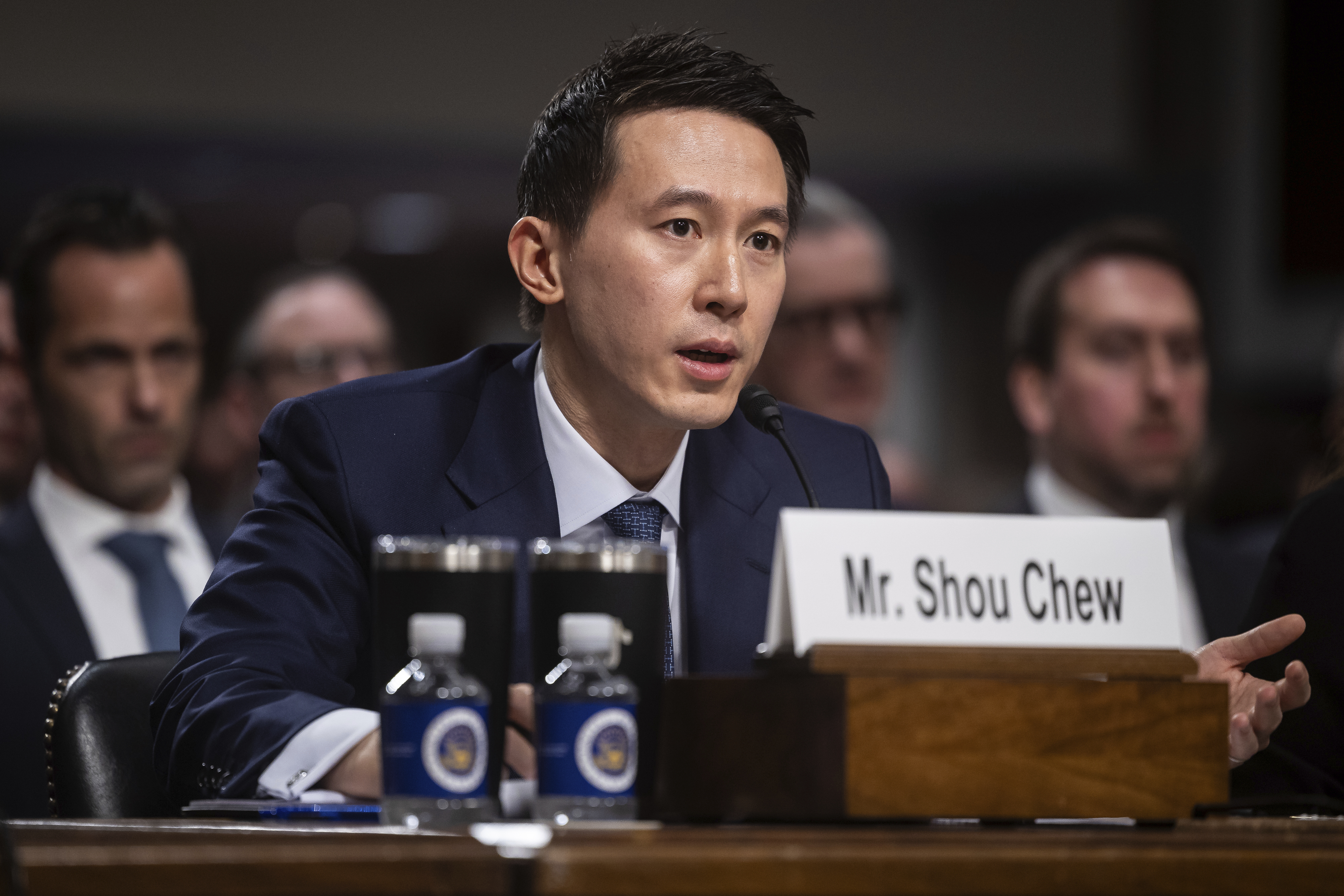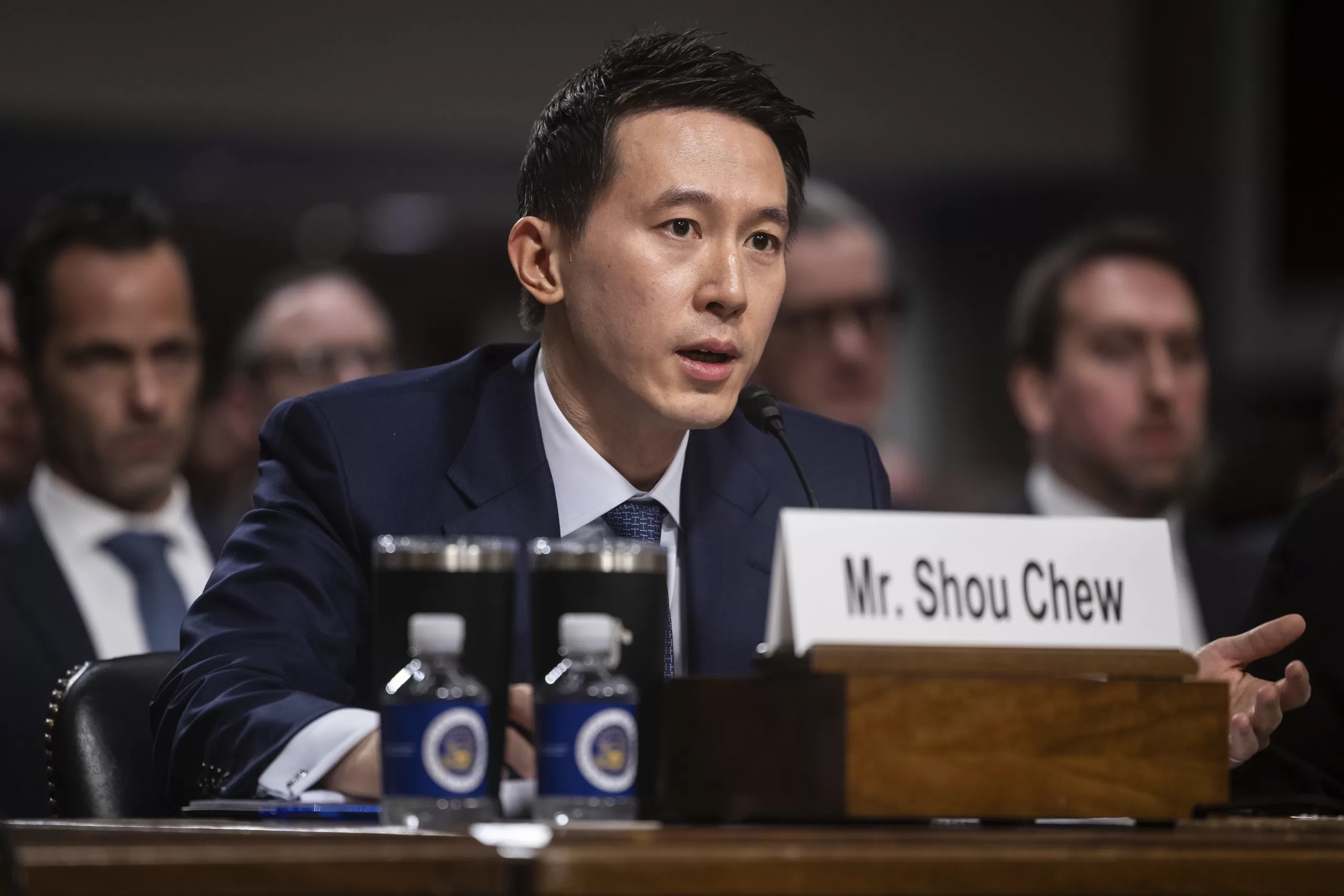
Since then, however, the app has boosted its spending on lobbying and cultivated influential friends.
Chuck Rocha, a veteran Democratic strategist who served as a senior adviser on the Bernie Sanders’ presidential campaign, counts TikTok among his clients and has been working to get Democratic campaigns on the platform.
Jim Messina, a former Obama campaign manager, consults for TikTok on Congressional hearing preparation and other matters, and told POLITICO, “It is absolutely essential that Democrats be on this platform,” praising its reach among young voters in particular.
A person close to Messina said he has not spoken to the Biden campaign about the use of TikTok. Rocha also says he has not spoken to the campaign about joining TikTok.
For years, TikTok has steadily played the influence game — a
long-haul strategy to beef up its lobbying and insulate itself against government attacks through the Western world.
After its CEO took a high-profile bruising on Capitol Hill last year — with some members overtly calling for the app to be banned, or a sale forced — TikTok and ByteDance, its Beijing-based parent company, nearly doubled their lobbying spend as 2023 rolled on, pouring a combined $4.4 million more into the nation’s capital compared to the previous year.
The company has hired lobbying heavyweights on both sides of the aisle, including former Sens. Trent Lott and John Breaux as well as former Reps. Joe Crowley and Bart Gordon.
In private, it has also made a broad historical case to Democrats on the Hill about possible blowback, according to a person familiar with TikTok’s strategy — comparing a ban to the failed 1920s policy of Prohibition. (A TikTok spokesperson told POLITICO that this was not an official part of the company’s message.)
And while TikTok’s small army of lobbyists in Washington was never able to convince Congress that TikTok’s ties to China were benign, observers say it was able to cool things down.
“They were able to run out the clock, wait it out until priorities shifted,” said Lindsay Gorman, a former senior adviser for technology and national security at the Biden White House.
“We’re now tacitly condoning that this is just a normal platform that we should be engaging in political speech on, just like Facebook or X or YouTube or any other regular platform in the United States — when it’s not,” said Gorman, now a senior fellow for emerging technologies at the German Marshall Fund.
As part of an effort to bring the app’s influencers to Washington, the company
specifically targeted personalities on TikTok who had relationships with the Biden administration. The White House even hosted its first ever influencer
Christmas party last year, featuring TikTok stars.
In a statement, a TikTok spokesperson said it was “not surprising that candidates from both parties are increasingly using it to connect with constituents and voters,” adding that the average age of U.S. users is over 30.
With 170 million monthly active users in the U.S. — heavily tilted toward the younger demographic that Democrats desperately need in the 2024 election — TikTok is hard to resist as a political messaging tool. Both Republicans and Democrats have worked with TikTok influencers to push their campaign messages; the
Democratic PAC Priorities USA is even paying them to share stories about Biden’s successes and encourage voting.
TikTok is still banned on government-owned devices because of national security concerns over the Beijing links of ByteDance. The Biden campaign says its workers are using separate, non-government-issued phones to ensure security on the app.
Asked what spurred Biden’s campaign to join the app, the campaign said it has been considering joining for months. The new posts — one on Sunday, and another two on Monday — are part of an effort to “reach voters in an evolving, fragmented, and increasingly personalized media environment,” said Deputy Campaign Manager Rob Flaherty, who was formerly the Biden White House’s digital strategy director.
National Security Council spokesperson John Kirby said the administration’s official views on TikTok have not changed, despite Biden campaigning on the app. The White House last year gave federal agencies 30 days to wipe the app off all government devices. And a majority of states have banned TikTok on government devices.
“[I]t’s not approved for use on government devices and that remains the case today,” Kirby said during a White House briefing Monday. “And I think, again, I don’t want to get into too much of the national security, technical reasons behind that, but it does have to do with concerns about the preservation of data and the potential misuse of that data and privacy information by foreign actors.”
The app is believed to be still under scrutiny from the administration’s Committee on Foreign Investment in the United States. (An effort by the Trump administration to ban TikTok via executive order was
blocked by a federal judge in 2020.)
As part of the national security review, TikTok created a separate entity known as U.S. Data Security in May 2022 and is moving U.S. user data to domestic Oracle cloud servers.
A Treasury Department spokesperson didn’t comment on the TikTok review but said CFIUS is “an important part of Treasury’s national security mission and will continue to use all authorities available to protect national security.”
The campaign said its presence on TikTok is separate and independent from the CFIUS review
But the Biden campaign’s decision to join the platform could still complicate the administration’s future scrutiny of the company.
“When you become a valuable and leveraged tool, people are less likely to hate you,” said a person close to TikTok’s government affairs operation, pointing to how the Obama 2008 campaign was an early adopter of Facebook.
“That led them to see the platform as a positive, and I think that impacted how they viewed the platform when they got into their government jobs,” the person added. “I think it’s harder if you want to go around saying the platform’s the worst thing ever — then ‘Why are you on it?’ is the next question.”
As it was moving to build its government affairs team, TikTok was seemingly studying the operations of some of its tech peers. It hired up the former head of policy communications at Amazon to oversee its own policy communications shop. Its top lobbyist, Michael Beckerman, is the former president of the now-defunct Internet Association.
The moves appeared to earn the app a place in Washington as a peer of Meta or Twitter, as opposed to a foreign bogeyman. Chew’s appearance before Congress last month alongside Snap CEO Evan Spiegel, Meta CEO Mark Zuckerberg and X Corp. CEO Linda Yaccarino and Discord CEO Jason Citron added
another layer of mainstream business gloss.
And in a dynamic familiar to anyone who has watched corporate interests joust with politicians, TikTok has simply outlasted many of its Washington critics.
House Energy and Commerce Chair Cathy McMorris Rodgers (R-Wash), who oversaw last year’s hearing and flatly declared “TikTok should be banned,” is retiring from Congress. So is Rep. Mike Gallagher (R-Wis.), the hawkish Republican who chairs the China Select Committee on the CCP and co-sponsored a bill to ban the app. The Republican presidential candidates who hammered TikTok in presidential debates have nearly all dropped out.
The app also benefited from
huge friction across the government when it comes to how to how to ban an app — or how to insulate any ban from the inevitable court challenges.
Though TikTok has bought itself some breathing room, Biden’s embrace of the app does open a new avenue for partisan attack on the president himself.
“I think it’s a huge mistake, and most fundamentally hypocritical,” Brendan Carr, a Republican FCC commissioner who’s long pushed for a TikTok ban, told POLITICO.
“For Joe Biden to be going on TikTok at the moment that his national security team for years has been unable to reach the view that this is a platform that doesn’t present a national security threat is a real problem,” he said.
Lauren Egan contributed to this report.
